■ I’m an avid reader, and my favorite book is Chop Wood, Carry Water by Joshua Medcalf. He talks about focusing on the preparation and relinquishing the results. And I’m one of those people who, if I had a chance to be the hero and take the last shot but an 80 percent chance of missing it, I would take the shot. So I’m choosing to come home to Chicago regardless of what the outcome is. I want to end my career where I started it, and whatever happens in between is out of my control.
■ The second-best job to playing basketball is talking about it. I pride myself on knowing the game, the history of it, and the players. I think my authentic love of it shines through in my broadcasts. And I’ve always respected the men I grew up watching, who have respected me in return. The issues come from guys who weren’t able to play basketball past their middle school or high school days. Somebody who didn’t play is qualified to talk about it, but I can’t because I was born a woman? In my mid-20s, there was a switch that flipped when I stopped concerning myself with why they were acting this way. I’m not someone who wants to be coddled, and I’m not going to coddle the men I’m around — or not try my best because it would hurt their ego. That’s just not the way I was raised.
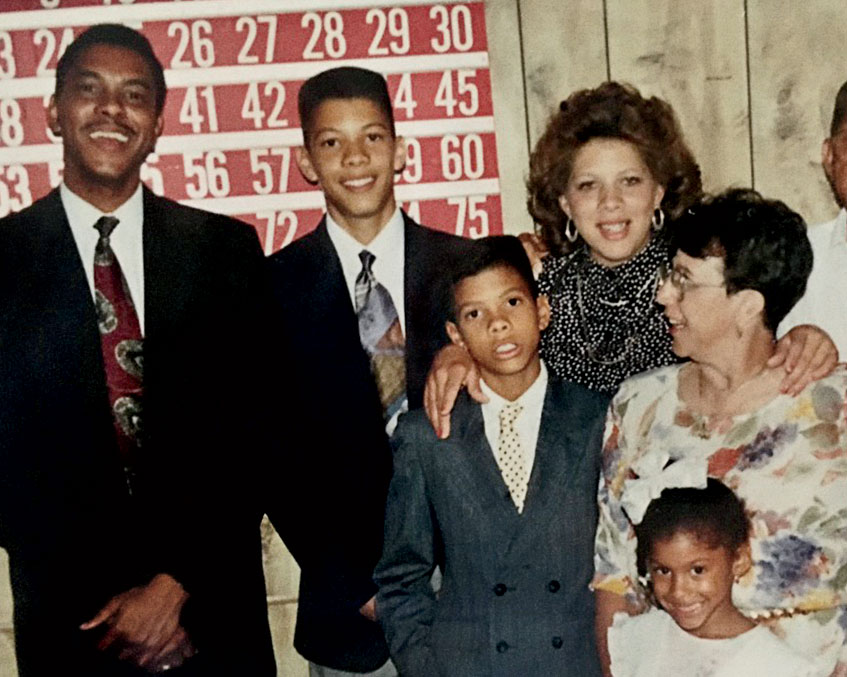
■ I grew up in a household where we were humbled. We realized that you can’t take yourself too seriously. You’ve never got everything figured out. You make mistakes and admit them. You laugh. You joke. On a Saturday morning, if my oldest brother, Anthony, had shot poorly in a game the night before, my dad would get up and start looking around in a kitchen cabinet. We knew not to ask. But if we had a friend over, they would be like, “Hey, Mr. Parker, what are you doing?” “Looking for Anthony’s jump shot.” And when I was named one of People magazine’s most beautiful people during college, my brothers sent me hilarious photos of me: “Should we show People these?” So I have people who will bring me right back down to reality.
■ My dad was tough on me across the board. In sixth grade, the workload got to be so much that I told him, “This isn’t what I’m cut out for.” My brother Marcus is brilliant. He’s a doctor and scored like 34 on his ACT. I was like, “I don’t know if I’m gonna be able to do it like him.” And my dad made me stay up and redo my homework until it was perfect. He said, “Now you’ve set the bar. It’s up to you to hold yourself to it.”
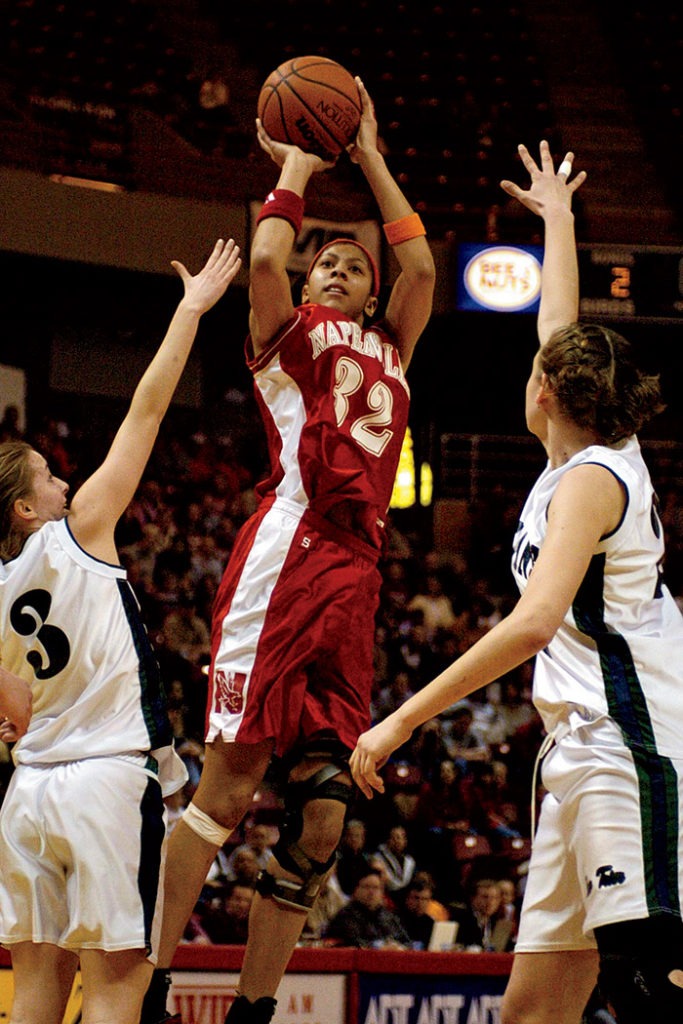
■ It’s important to show up. It shows people that you care. At one point, my parents had a sophomore in college, a junior in high school, and my YMCA basketball games. So on Saturdays they’d go to my 8 a.m. games, then Marcus’s noon game, then we’d all drive to Peoria to go to Anthony’s 7 p.m. game for Bradley University. We weren’t allowed to not attend. We supported each other. And I’m trying to carry that forward with my child.
■ Before my freshman season at Tennessee, I had a scope procedure on my knee. I woke up in the hospital. My parents and my coach, Pat Summitt, were there, and we were joking, because I guess I’d been telling them through the anesthesia, “We won.” They’re like, “What did you win?” So I’m feeding into it and laughing. Then I saw the doctor’s face, and everybody kind of stopped laughing. I remember my parents and Pat saying, “We should tell her,” and the doctor saying, “No, we have to wait until she wakes up fully.” I said, “No, I’m awake. Tell me.” Pat and my dad kind of grabbed me, and I knew it was bad. They said I needed an additional surgery that was season-ending. Back at our hotel, I remember being really upset, like, Why does this have to happen to me? I had just come off ACL surgery the year before. After an hour of me screaming and yelling, my dad took me into the bathroom and made me look at myself in the mirror. He was like, “OK, you’ve had your pity party. Now what are you going to do about it? You need to promise yourself that you’re going to overcome this.” And that really stuck with me, because as a parent it would have been easy to just say, “I’ll make everything fine.” But he made me take responsibility for myself.
■ Not being able to play that season was a huge blow, because playing is something I would always do whenever something was wrong. I was also going through the transition of moving to college, and my parents were getting a divorce. But I was one of those kids who tried to act like everything was fine and dealt with stuff by myself. Pat noticed what was going on and made me go see a sports psychiatrist — who I wouldn’t talk to. I didn’t know how it would help me. And so I would go to the sessions and we would just sit there. I would do my time. Pat got wind of this and was like, “Instead of doing that, why don’t you come by my office at lunch every Wednesday. You can do your homework, but just sit in my office.” The first two times, we just kind of sat there and talked. By the third session, it was like therapy for me. We talked about life and how we dealt with stuff. She was the one who really helped me through everything. And she was ahead of her time in terms of advice. She’d say, “I’m going to tell you what you need to hear, not necessarily what you want to hear.” A lot of times we gravitate towards comfort and don’t want to solve the underlying problem. A phrase that has echoed in my ear from different coaches and mentors is “Get comfortable with being uncomfortable.” People who can live in that space really have an advantage.
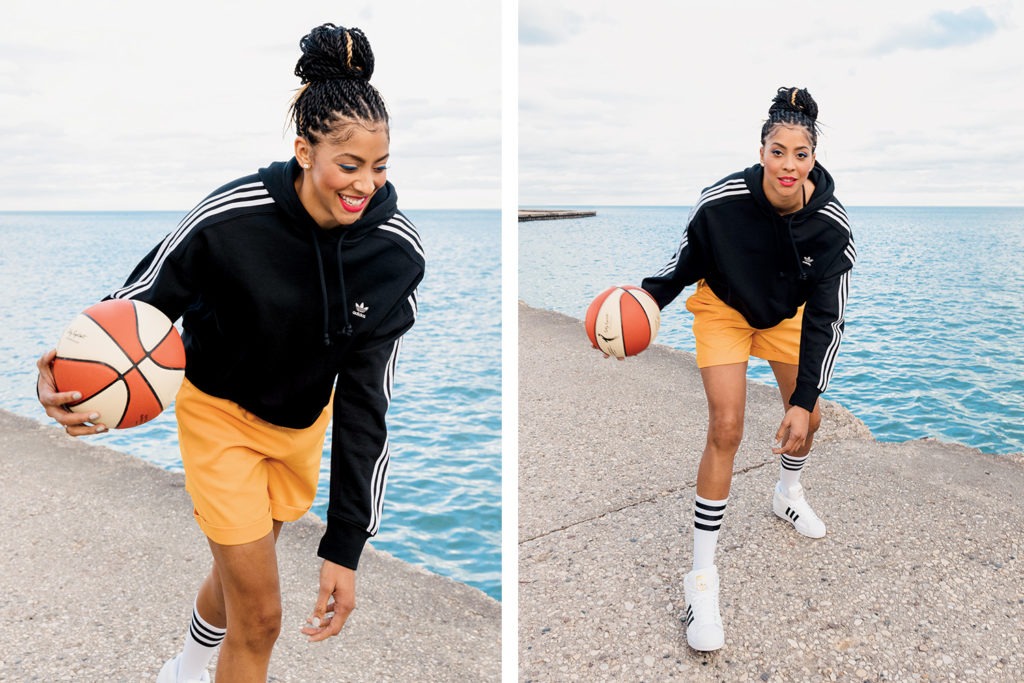
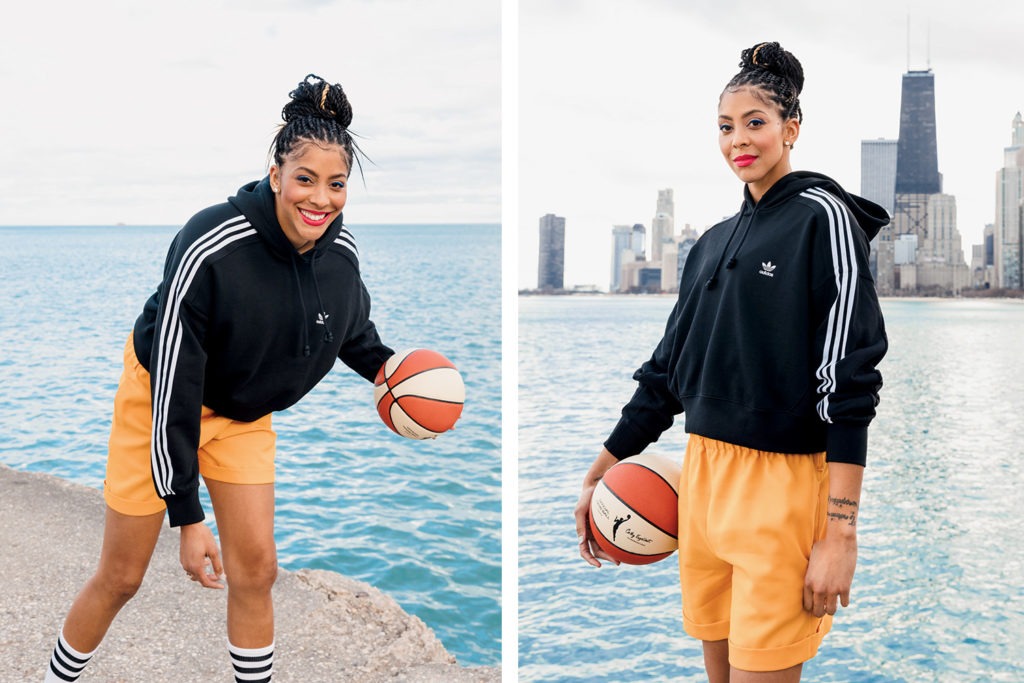
■ When I was 18 or 19 years old, I was dating Dwight Howard. He was going straight to the NBA, and everybody was talking about him. I was hung up on the fact that, dang, I’m skilled, I’m pretty good at what I do, but this guy’s set for life on his first contract, and I’m not. Then when I got out of college, I realized the limitations that were put on women in general, not just in sports. And that was difficult, because nobody had ever called me bossy, nobody had spoken of my confidence, nobody had said that I couldn’t do math. And I started realizing the world wasn’t what I thought it was. But I wasn’t gonna let it change me.
■ Having Lailaa at 23 years old really made me grow up and try to be a better person. I was taken aback by people’s initial reaction when I announced I was pregnant. It was like, “How could you do this to us? You’re not going to be the same.” But if you tell me I can’t do something, I’m going to do it. So I had everything scheduled. I worked out during my whole pregnancy, and I worked out again two weeks after I had my daughter. Two weeks after that, I was on the court. And six weeks after that, I was playing in a game. I was nursing and Lailaa was just along for the ride.
■ Your kids are constantly watching you. I remember crying after a game. We’d lost in the Western Conference finals, and I was really upset. There’s a picture of Lailaa coming onto the court and hugging me. Fast-forward a couple of months. We were at my brother’s house, visiting her cousins, and they were playing a board game. I went in the room because I heard some yelling. Lailaa was in the corner, crying. So I walked over to her and said, “What happened?” “I lost.” And I said, “We don’t cry when we lose.” She’s like, “But you did.”
■ I was married to Shel for eight years after I had Lailaa. It’s difficult to balance. You have this love for the game, and it takes you so many different places. And there’s a growth factor: Sometimes you grow apart. You don’t know your true self yet, and you’re trying to get to know somebody else as well. It’s like rolling the dice, because you’re kind of betting on who the other person is going to be. Going through the divorce, with TMZ reporting stuff and so many people knowing what was going on, was difficult for me. We had to have conversations with Lailaa about how sometimes things that are personal get out. But I can honestly say we do an amazing job coparenting. Lailaa absolutely loves her dad, who’s super supportive. So it’s been as easy a transition as you can have. There are ups and downs — I’m not in any way saying there aren’t — but we’ve landed on two feet and we’re in a good place.
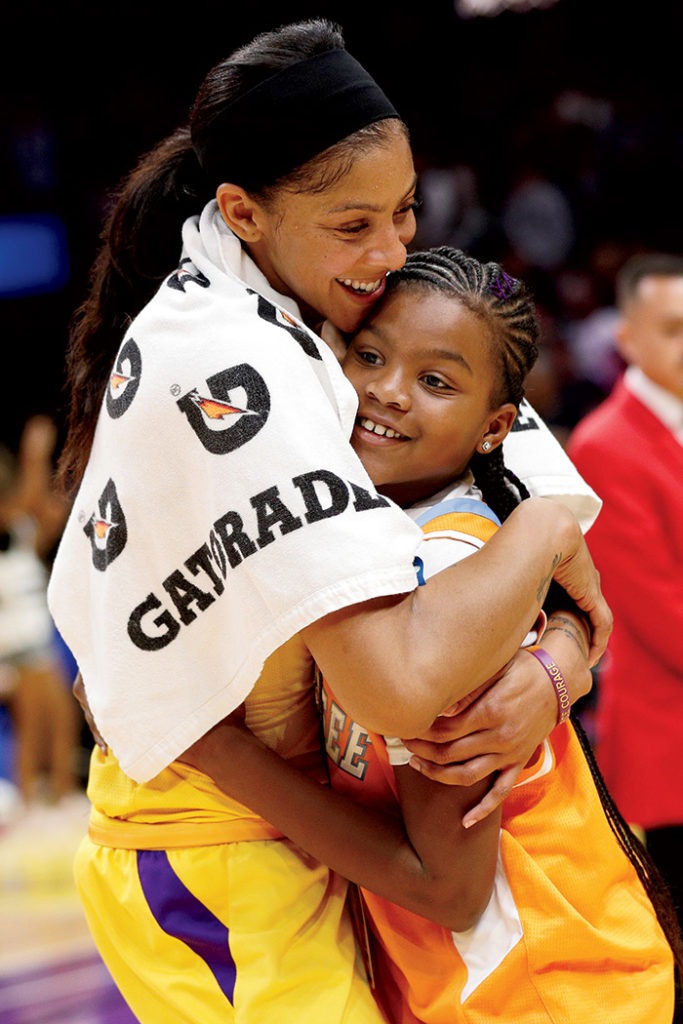
■ When I play against my daughter, I’ll let her score maybe once or twice, but she won’t beat me. Everybody is like, “Candace, let your kid …” No, absolutely not. That’s the biggest problem with sports that they play at this age. They lost five games and she got a trophy? Like, I’m confused how you get a trophy from that.
■ I talk over everything with Lailaa, like the decision to come to Chicago. We’ve traveled the world together. She grew up in Russia. Her first school was in Russia. And it got harder as she got older. The last time we went to China, I remember telling her, “Hey, baby, Mommy got this great opportunity. But we’re a package deal, so I want to talk it over with you. It would be for only eight weeks. What do you think?” And she turned her head, and I saw a tear fall to her cheek, and she turned back around and was like, “I think we should go. We’ll be OK.”
■ Confidence comes from preparation. It comes from repetition. It comes from putting in the time and the hours. And I believe that I belong. I belong on the basketball court. I belong at that TNT desk with Shaq and D-Wade. I was raised in a household where I wasn’t limited because I was a girl. I didn’t have a different curfew. I didn’t have to do the dishes and cook while my brothers sat on the couch. No, we all did everything. Even when I was the only girl playing kickball, I felt as though I should be out there. And I went to a predominantly white school in Naperville, so I don’t feel uncomfortable walking into a room or sitting at a table with all white people — or all men. When I was in China, I was on a team of all Chinese players, and I didn’t speak their language. But I didn’t feel uncomfortable. I don’t ever think I shouldn’t be there.
■ In 2016, when we finally got the WNBA championship, it was so amazing. But I’m one of those people who remember my losses more. I remember almost feeling disappointed the day after we won, because the feeling wasn’t what I thought it would be. Like, I automatically wanted to do it more, get more championships. I had to learn to stop and really appreciate moments.
■ It’s interesting how society judges people based on their accomplishments. I saw an Instagram post that was like, “Candace won a championship, she knows what it takes.” We won a championship by one point in game 5. Four times, I’ve been one shot away, so I could have been a four-time champion or a zero-time champion, but I still have the same knowledge and the same experiences. If I worried about what people said, it would mean I’m this close to not knowing what I’m talking about because I don’t have the rings to back it up.
■ A couple of years ago, I was voted the most overrated player in the WNBA. It was a poll by the Athletic. Players voted. I laughed because it’s almost comical. But honestly, it just gives me more motivation on a random Tuesday to wake up and work out. That’s what I’m taking from it.
■ Especially now, the knock on me is that “Candace doesn’t always play hard on every single possession.” I think my pain has been mistaken for not working hard, because sometimes my body’s not cooperating. If those people knew how much I had to do just to get out of bed and onto the court. I feel like you know your own truth, but still, it eats at me, because laziness is one of those personality traits that really bothers me.
■ I remember one game when Kobe Bryant was 6 for 26 from the field and he came down the court — calm, cool, and collected — and nailed the game winner. I texted him the next day, like, “How do you have the confidence to do that?” And he said, “I’ve put in so much time and work and energy that, statistically, the next shot had to go in because I’d missed so many times.” I was like, Wow. That’s really shifting the way you think about it. What makes one shot at the end of the game more important than the previous 20 you took? Your mind is the thing that’s holding you back the most. I’ve struggled with free throws occasionally. But it’s not the actual free throw that’s messing me up — it’s my brain. So you try to figure out ways to turn that off. One of my family members was like, “You should sing a song at the free-throw line.” “Forever Young” by Jay-Z is my free-throw line song. It makes me happy, and I started shooting better.
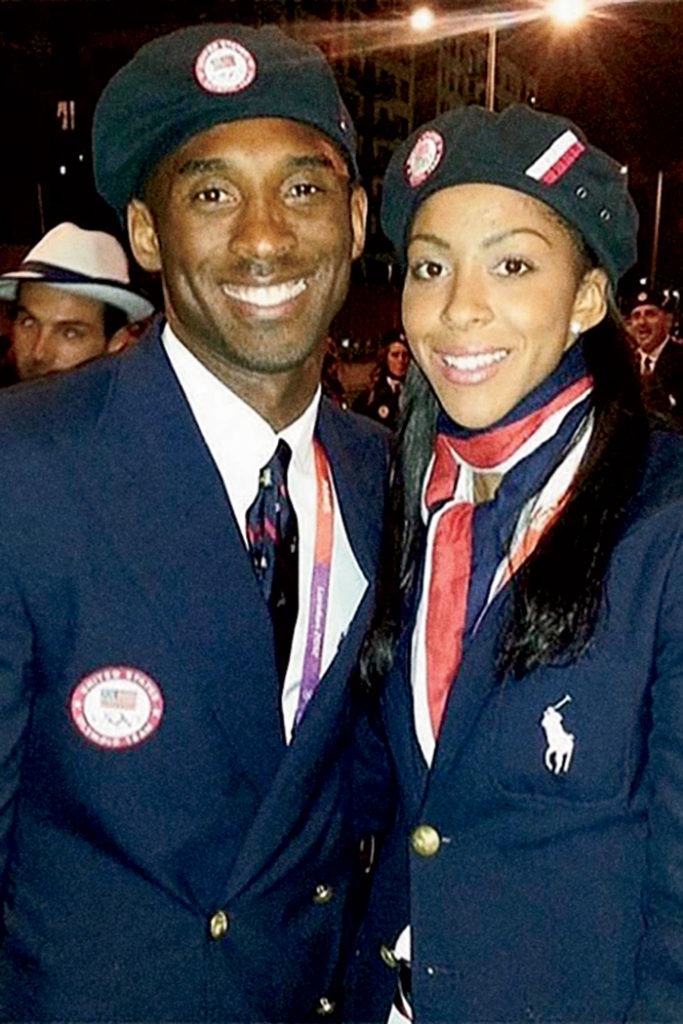
■ Kobe was a mentor, and I really got to know him well in 2008. We hung out at the Olympics, and I went to a couple of events with him. He was a professional before I was, and I’d watched this guy win championships and have that mindset. To have that model and blueprint, especially in L.A., was really special. He called me before one of my huge playoff games, after we had lost in game 4, and basically said, “I’m not trying to Hoosiers on you, but the basket is the same in L.A. as it is in Minnesota. You know what you’ve got to do. Go get it done.”
■ I was about to take my daughter to a basketball game when I heard about Kobe. It was one of those moments that rock the entire world, when you’re always going to remember what you were doing. He really let us see who he was during his last couple of years. He let us see the joy and the laughter instead of always being serious. He was an entire human, not just a basketball player, and I kind of fell in love with the part of him that was a father who brought his daughter around to different tournaments. And so I think that’s what’s been so hard to move past. All of us, especially athletes, can see ourselves in him. I still wake up and can’t believe it. It doesn’t seem real.
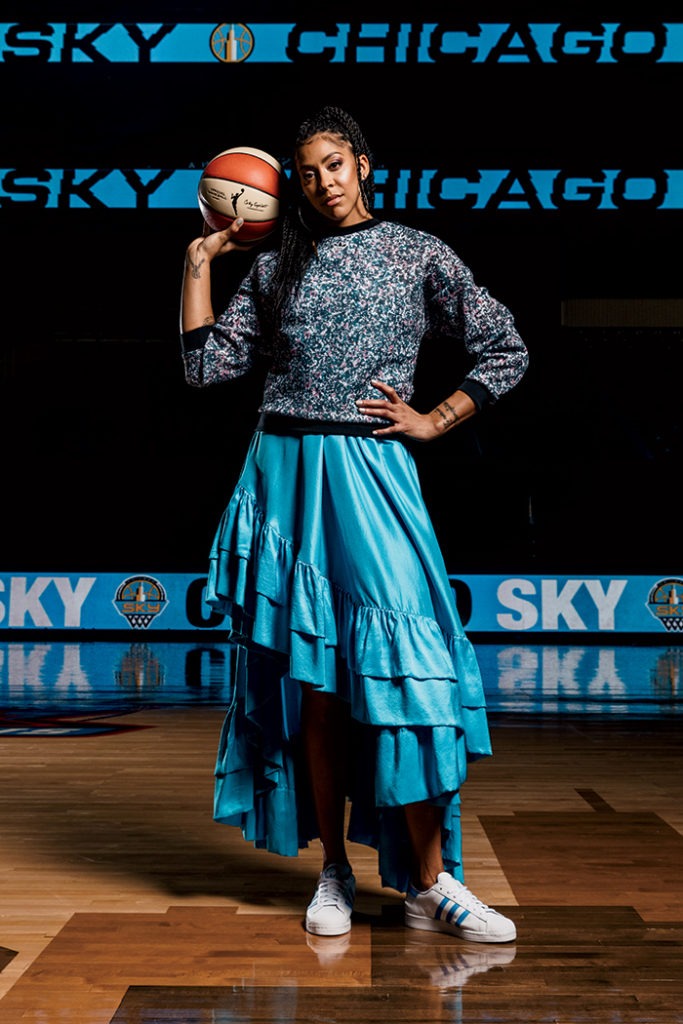
■ I have always been super interested in the history of our country, both good and bad. I remember, when I was younger, my dad and I would talk about what I learned in school, and then he would show me lies my teacher told me or things that they don’t put in history books. At 13, I was able to go to France to play basketball. And my dad and I spent three or four hours in Les Invalides, a museum that is basically the perspective of the French on World War II. That was the first time I saw Americans painted not as heroes in a museum. I also heard my dad’s stories about going to Joliet West, the amount of hatred he received. They bused in Black students to desegregate the school, and he was part of that. He played varsity his freshman year, and one of their first games, people were throwing quarters at them because they were Black. And so it’s a matter of being able to see how far we’ve come but also how far we have to go. What are our blind spots today? What aren’t we addressing? America is built on these principles and fundamental ideas that are great, but we wait until something happens to react.
■ I was a little bit of a hothead when I was younger. And my mouth has gotten me into trouble. I would yell. I got technicals. I have passion and energy and fire, and I may not have always whispered to my coaches when I talked to them. But I don’t think anger should hold you back. It hasn’t held me back. Sometimes, in your heart, you know something is right, and you just do it because it’s authentic to who you are. The fight with Detroit’s Plenette Pierson in 2008 was one of those things where you either face the bully or you end up getting bullied your entire career. There’ve been skirmishes since then, but nothing like that. I’d still be described as highly emotional, but I’ve gotten better. And over the last 10 years, I think the world has adjusted to women being passionate about playing a sport they love.
Styling Jessica Moazami
Hair and makeup Chrisondra Boyd
Photo assistant Aaron Rhodan
Inside shoot location Wintrust Arena
